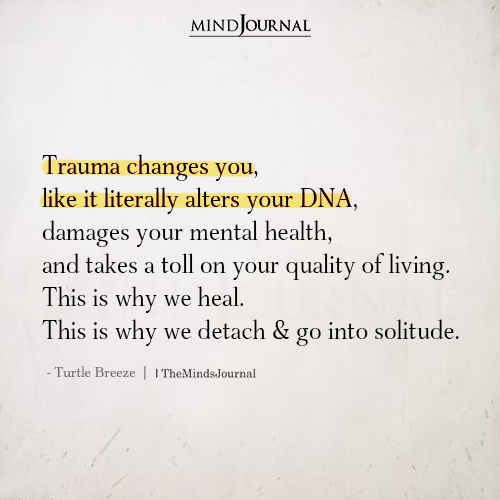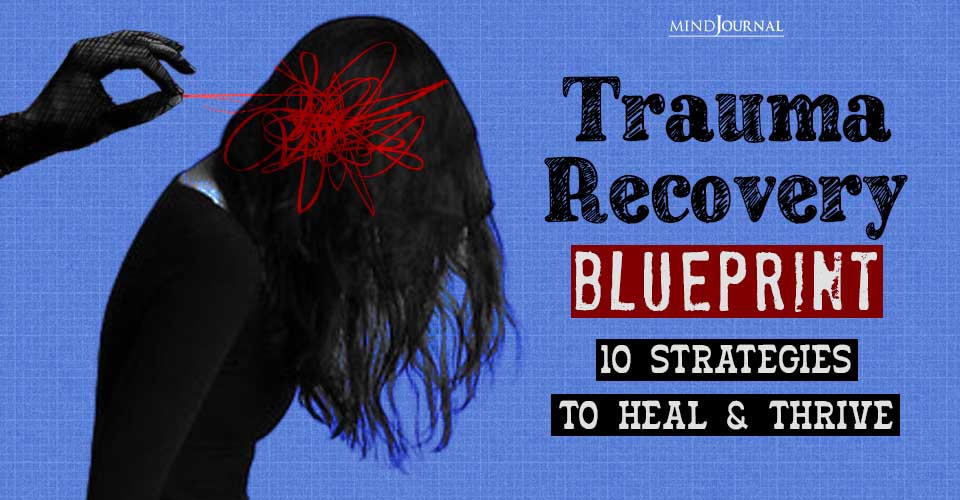Unleash your ability to heal and thrive with our trauma recovery blueprint. Discover 10 powerful strategies designed to guide you through recuperation.
Most codependents experience abandonment trauma in childhood, which can take many forms ranging from overt abuse to covert neglect. Even subtle signs that one of our parents does not listen to our thoughts, feelings, or needs send a message that we’re not valued for who we are as an individual.
This abandonment trauma lays the groundwork for shame and codependency, which can be a precursor for troubled, adult relationships where we feel unvalued, not enough, and emotionally abandoned compounding our original trauma.
Leaving an abusive relationship doesn’t solve the deeper feelings of insufficiency, shame, and emptiness. Worse, we may experience abusive relationships that further scar our self-esteem and confidence.
We also may endure other types of trauma from illness, accidents, surgery, war, financial and professional reversals, divorce, and environmental disasters. Trauma experts claim the body remembers. Yes, trauma is held in the body, and our body needs to heal as well as our mind and heart.
Notwithstanding that I know this, I’ve had my share of traumas and continue to learn about healing from them. The following is a list of necessary ingredients for healing.
They may sound simple, but are not always easy to follow consistently given our emotions and the stress and necessities of daily life.
Related: Can Childhood Rejection Trauma Lead To Possessive Behavior In Relationships?
Trauma Recovery: 10 Strategies When Dealing With Trauma
1. Get Support.
When we’re dealing with trauma, we can’t heal on our own, especially when we’re codependent. It’s easy to become discouraged and to revert to self-destructive thinking and habits. We need a person or a team that supports, guides, and encourages us.
2. Set boundaries to feel safe and not triggered.
We’re especially vulnerable following a recent trauma. We often think we’re stronger than we are. We may feel empowered after leaving an abusive relationship or surviving a life-threatening event, but we’re susceptible to being wounded again.
Our bodies, including our nervous system, take time to regain strength. We must exercise self-care and have firm boundaries to avoid another abusive relationship, protect ourselves from violent media, and maintain positive conversations with friends and family.
3. Share your experiences with a safe person.
Healing requires that we talk about what happened to us, optimally, a therapist, to witness the pain we’ve suffered, validate our experience, and reaffirm our healthy self.
Our view of the past may be skewed. We may assign blame incorrectly to ourselves and others. Someone trained and objective can reframe our beliefs and interpretation of events in helpful, healing ways. There are several effective types of trauma therapy, but the skill, experience, and empathy of the therapist are pre-eminent.
4. Express your emotions. Journal.
As emotions from the past and daily life arise, it’s important to honor and express them. Journaling can reveal and shift our feelings and attitudes. In addition, we can vocalize our emotions aloud and communicate feelings and needs to others as appropriate.
Denying or consciously suppressing feelings hinders our progress. Our psyche and body need to release what has been stored inside that blocks moving forward. Tapping and dialoguing with our inner child are self-help tools that aid in releasing emotions.
Recovery also includes coming out of denial about ourselves, other people, and our relationships. Both trauma and recovery change us. We see our experiences, ourselves, and others through a different lens. We relinquish ideas and illusions about loved ones, ourselves, and dreams for a future we may have hoped for. Accepting reality entails grieving and reevaluating our beliefs, behavior, needs, and reality.
5. Calm your nervous system. Meditate.
When we live with abuse or experience a traumatic incident, our sympathetic nervous system has a trauma reaction, but it’s the parasympathetic nervous system that allows us to heal.
We may think we’re fine, but stay in an anxious, hypervigilant mode for years. For example, following a surgery that re-triggered memories of abuse, I was unable to be still and meditate for quite some time.
Meditation, breathing exercises, and various martial arts and other practices can help soothe our reptilian brain which is still on high alert. Spending time in nature, socializing, and being creative are also avenues for healing. See my article, “Interrupting the Cycle of Chronic Pain” and “The Healing Power of Eros.”
6. Forgive yourself and others.
Toxic shame can lead to irrational guilt. Codependents frequently judge themselves harshly and often blame themselves for their past choices and behavior – even the actions of other people.
It’s common to wish, “If I only knew then what I know now,” and feel ashamed or guilty about our past. This keeps us stuck and prevents self-love and healing. Freedom from Guilt and Blame – Finding Self-Forgiveness e-workbook can help you overcome guilt.

It’s helpful to forgive those who have harmed us, too. Stored resentment and anger block our fullest healing and future relationships. However, forgiving too soon can be problematic when we may be denying our anger and hurt.
When the time is right, forgiveness releases blocked energy and opens up new possibilities. There may be some actions that were so egregious that seem impossible to forgive, but we can do our best to let go of our anger and accept that things we can’t control happen to us and everyone.
7. Practice self-love and self-care
When we haven’t received tenderness, understanding, empathy, compassion, and nurturing, it’s a tall order to give that to ourselves. It’s more than bubble baths, and for most of us, it’s a life lesson.
It includes maintaining healthy sleep, nutritional, and exercise habits, and reserving time each day to connect with our inner self and higher power. Prioritizing our emotional, mental, and physical health necessarily requires self-discipline, internal boundaries, and boundaries with others.
8. Lovingly embrace your inner self.
Connecting with our inner self is difficult when we’re anxious, busy, impatient, or angry. We have to slow down enough to be present, listen, feel, and connect with our body and visceral sensations moment to moment. When we’re able to stop the stream of inner chatter, our body can release tension held from years of trauma.
Try lying on the floor or bed. Sink into gravity’s support. Imagine dropping deeper and deeper beneath the ground. Merge with your breath without thinking about or trying to change your breathing.
9. Find joy, pleasure, and fun. Socialize and laugh.
Inner work must be balanced with filling our needs for socializing, friendship, and pleasure that make life worthwhile. Don’t isolate. Experiencing inspiration, joy, and laughter is therapeutic. They release healing chemicals, including endorphins, dopamine, serotonin, and oxytocin.
10. Invest in life, goals, and your future.
It’s a mistake to overly focus on the past and the pain we’ve suffered. Repeated trauma is often accompanied by grief and depression. Grieving is necessary, but healing is slowed if we withdraw into depression.
If necessary, take anti-depressants. We also have a future we want to heal into and enjoy. New goals give us something to strive for and look forward to. We gradually adjust to our new identity, self-respect, and needs.
Above all, remember that recovery is a process that can’t be rushed, but we can stagnate without guidance and support. Listen to the Self-Love Meditation. Do the exercises in Conquering Shame and Codependency: 8 Steps to Freeing the True You to be free of crippling shame.
© 2024 Darlene Lancer
Related: What Is A Trauma Bond? 10 Signs Of Trauma Bonding
There are various types of trauma therapy to help yourself with. Tell us your thoughts on trauma recovery in the comments below!
Written by: Darlene Lancer
Originally appeared on: WhatIsCodependency.com










Leave a Reply